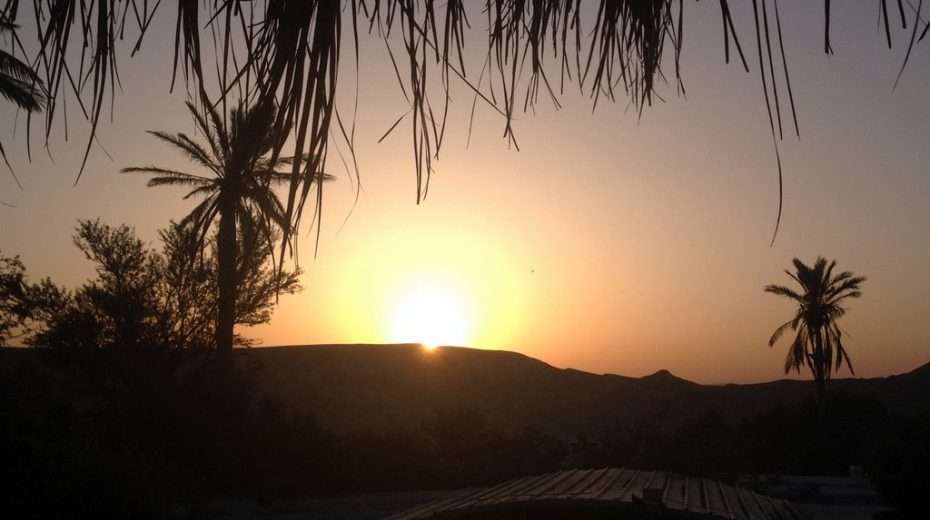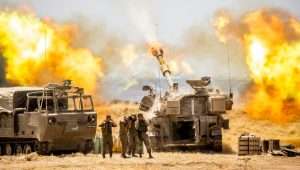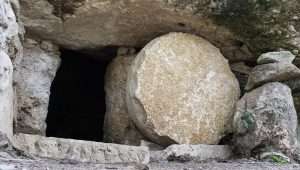For thousands of years, the Jews have celebrated their liberation at Passover. Not only are the events of the past commemorated, but everyone is encouraged to put themselves in the position of what is happening as if they themselves had been a slave and left Egypt. When I did just that in April 2020, it resulted in the beginning of a very special experience.
The night of nights
The Egyptians had long refused, to let the Hebrews return to their homeland. The land had already suffered nine plagues. But it was not until the tenth plague: the killing of the first-born of all people and animals, that Pharaoh changed his mind. People died in every family. The angel of death only passed by the houses of the Hebrews, whose doorposts were smeared with the blood of a freshly slaughtered lamb. That very night, Pharaoh said to Moshe and Aharon: “Leave my land, both of you and all your people.“
The Hebrews were prepared for a hasty departure. They gathered in groups, to eat the roasted Pesach lamb and the unleavened bread standing up – as God had commanded. When the sun rose above the horizon, all the people of Israel headed east on a cool, still morning.
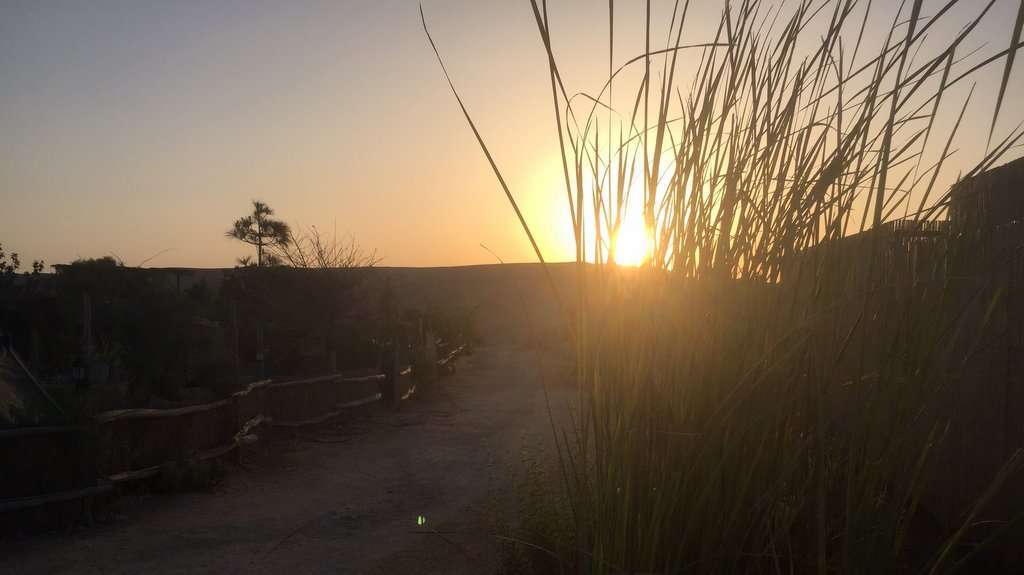
Many Egyptians and other non-Israelites joined the triumphant children of Israel, hoping to share a great future with them.
Timeless insights
- The trigger of liberation
When the Israelites in slavery groaned over their oppression, their lamentation touched God’s heart, he remembered the covenant with Abraham, Isaac and Jacob and initiated their liberation (Exodus 2:23-25). In this case, it was not repentance or particularly god-pleasing behavior that moved him – it was the need and the cry of his children. A principle that still applies today to all of God’s children and especially to his chosen people. “Call on me in the day of trouble; I will deliver you, and you will honor me!” (Psalm 50,15)
- The price for those who touch the apple of God’s eye
The entire Egyptian nation paid an enormous price for offending God’s people: one death in every family and the destruction of the Egyptian army. The Bible does not provide exact figures. But if you extrapolate, it must have been one of the highest loss rates of all time. And it affected everyone in Egypt – regardless of whether they were actually guilty themselves. Unjust? The people and Pharaoh were warned nine times through nine plagues. Did the observing civilians become active – or did they prefer to look the other way and remain silent? In any case, their passivity was not counted by God as a mitigating circumstance for which they would have been spared.
The history of later years shows us, that this principle is also timeless. (See appendix for current examples). States, nations, organizations and rulers, who offend Israel, still bring curses on themselves and all their citizens today (Numbers 24:9).
- The hidden blessing
During slavery, the Hebrews had to perform an incredible amount of work without pay. On the surface, the Egyptians enriched themselves as a result. But when the Israelis left, the Egyptians gave them treasures at their request, so that they were rich when they left the land as free people (Exodus 12:35-36).
In this way, God provided a balance and turned the original suffering into a blessing. Even in the present day, we can hope, that God will turn absolutely hopeless situations around and bring about the unexpected, such as the founding of the state of Israel after the Holocaust.
- Our share
Time and time again, human history reveals itself as an interplay between people and God, in which God performs miracles – but at the same time expects people to make a contribution. Whether it was the cry for help, that moved God’s heart, the obedience to slaughter a lamb and paint the doorposts, the courage to leave Egypt and embark on an uncertain journey or the absolute trust in God to walk through the sea – Israel also had a specific task to fulfill at every step.
God does not deal with people like puppets, but continues to respect our will and our decisions. As a result, we can become both blessing accelerators and blessing obstacles.
The Celebration of Freedom
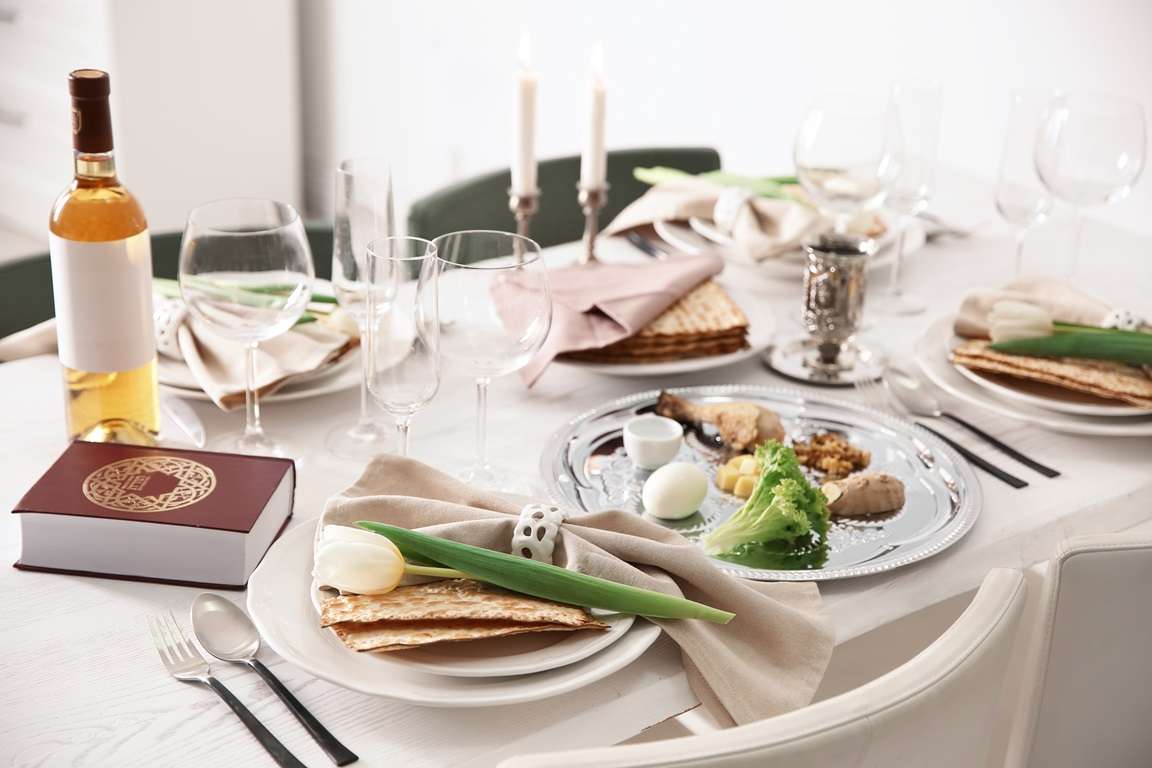
Millennia have passed since the exodus from Egypt – and since then, Passover, one of the most important festivals in Judaism, has been celebrated annually in the week from 15 to 21 Nisan[i] and begins with the Seder evening on 14 Nisan.
The Passover celebration is a large family feast. The evening begins with a blessing and certain dishes – with symbolic meaning – are eaten together, according to a precisely defined sequence. The youngest child asks four questions, the answers to which reveal the meaning of the feast. During the course of the evening, a total of four cups of wine are drank. These symbolize God’s promises: to lead out the children of Israel, to save them, to redeem them and to accept them as his own people. The Seder leader reads the relevant biblical passages and explanations from the Passover liturgy[ii].
The retelling (Haggadah) of the liberation of the Israelites from slavery in Egypt connects each new generation with this central experience of redemption. Everyone is supposed to relate to the events as if they had been slave themselves, had left Egypt and were telling their children about it[iii].
Even in later times of hardship, Jews drew courage from their identification with this story and retained their hope of redemption.
April 2020
In 2020, Passover took place between the evening of April 8 and April 16 – in a state of exception.
On March 12, 2020, the World Health Organization (WHO) declared coronavirus a global pandemic. Travel warnings were issued worldwide, borders were closed and flights were canceled. Retailers, restaurants, schools, daycare centers and further education institutions had to close, university operations were suspended and only public businesses remained open. Millions could no longer work or worked from home. There were strict exit and contact restrictions, and gatherings of more than three people, were prohibited in Germany. [iv]
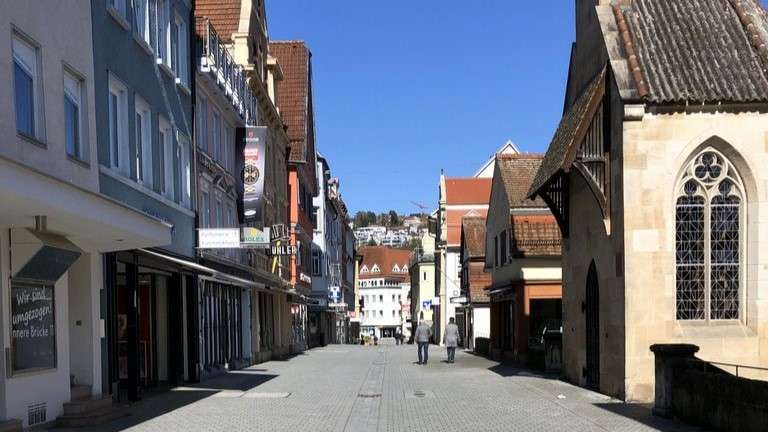
It was a completely new situation. However, I found the deprivation of so many personal rights and the associated incapacitation even more threatening than the illness, which was still unknown at the time. From one day to the next, the freedom, to act and make decisions for myself was lost.
At the end of February, we visited Israel shortly before the country closed its borders on March 6, 2020. We wanted to make the final preparations for a group trip, that we had organized for the following year. Like every time we have been to Israel, we have been impressed by the concrete facts, that were the fulfillment of prophecies (more on this in the article: How We Experienced the Miracle Israel). We visited our friends Ari Abramowitz and Jeremy Gimpel at the Arugot Farm, where you can feel so much of Israel’s pioneering spirit, and the Gush Etzion Museum, which brings you closer to the harrowing history of multiple destruction and expulsion – but also to the unbroken courage and will to rebuild of the Israelis. We drove to Sde Boker, to the Ben Gurion Desert Home and marveled once again at the miracle of the founding of the state in 1948.
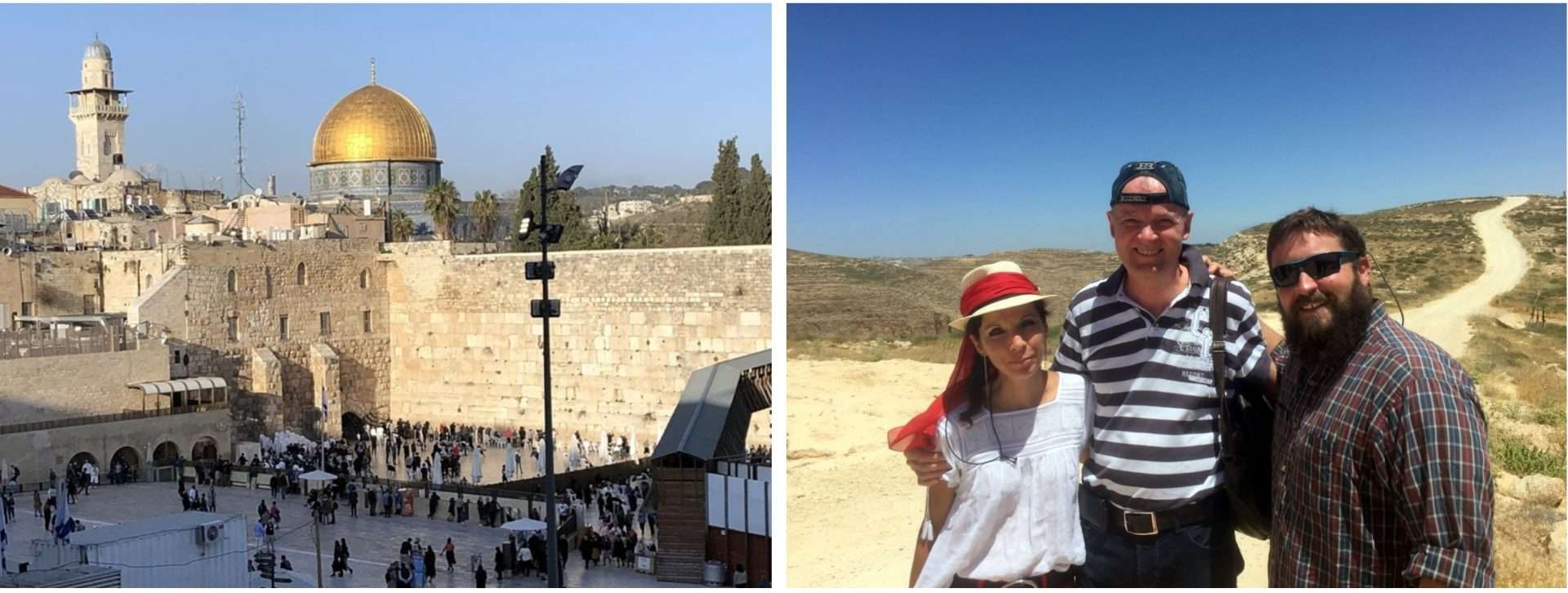
We went to the Western Wall and the Temple Mount, knowing, that this was still the place where God had said, his eyes and heart would always be (1 Kings 9:3). We got to know the Shorashim Shop in Jerusalem, which holds so many treasures, and Moshe Kempinski, the owner, a wonderful man, who builds valuable bridges between Christians and Jews through his books. We were impressed by the striking beauty of the Negev Desert and hiked amazed through the unique Wadi Avdat.
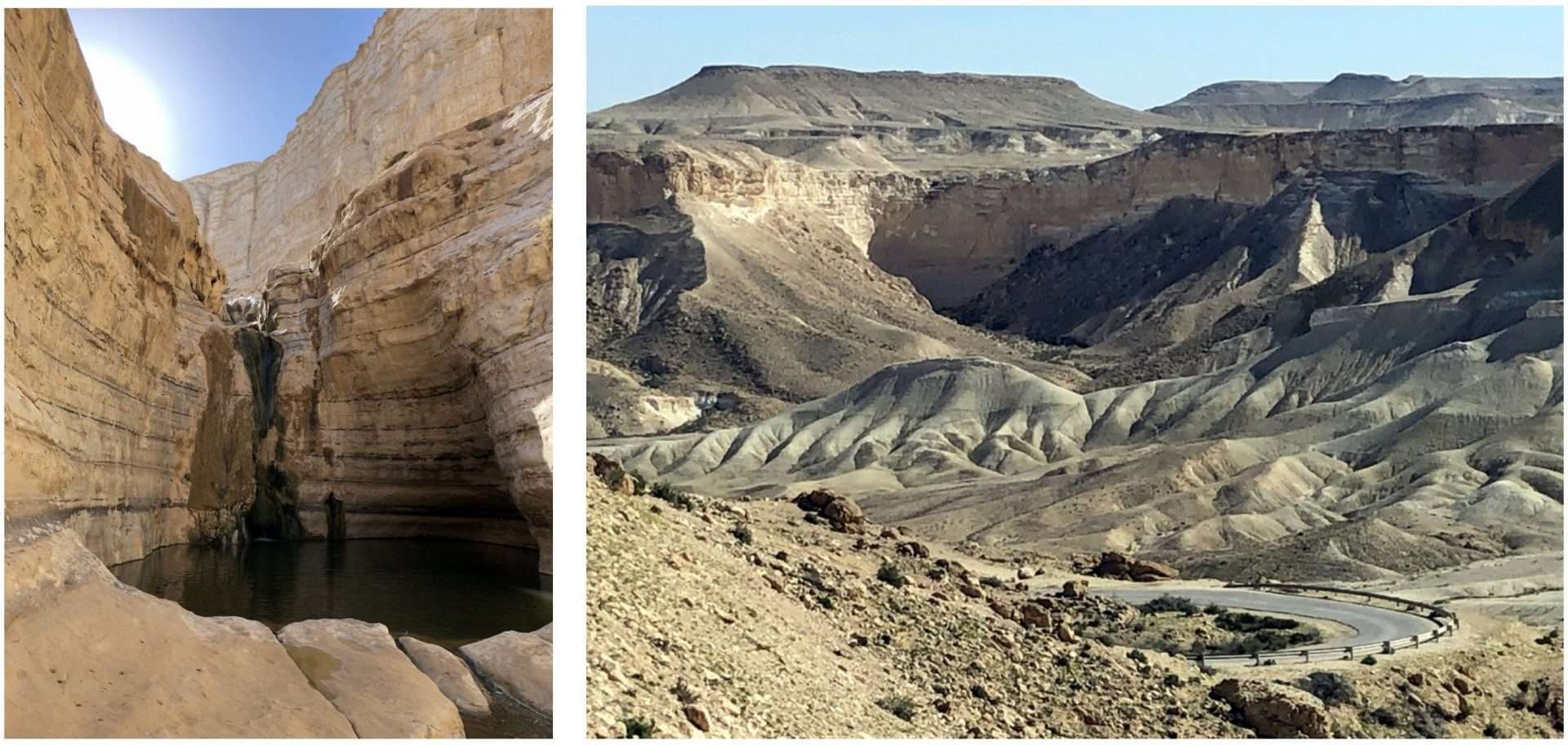
No wonder the people of the Bible often went into the desert to seek God. In this majestic solitude, everything concentrates on the essentials. And last but not least, we visited the people, who had become so dear to us and felt, that they seemed to have a special source of strength. Again we thought “we want to be united with you, because we realize that God is with you” (Zechariah 8:23). When we flew home, a part of our hearts stayed in Israel.
Then suddenly: closed borders, travel bans, canceled flights. Dreams and plans lay in ruins before us, suddenly there were unbridgeable geographical distances. But we felt the great desire to stay connected with these people and Israel anyway.
The very special seder evening
It was probably the first time, that Passover was not celebrated as a big family feast in Israel. Rigorous contact bans were also in place there. Our friends Aviel & Anat Schneider from Israel Today in Jerusalem therefore came up with the idea of celebrating the Seder Passover evening online and inviting people to www.israelheute.com/erfahren/pessach-sederabend-live-aus-jerusalem/, according to the motto: “No other festival symbolizes freedom and redemption more clearly than the biblical Passover. God freed his people Israel from slavery and led them to the Promised Land. The Almighty will also free us all from the coronavirus“. Thanks to technology, we were also in close contact with our friends from Judea during this time. We all wondered where the events would lead us, what would come of them?
And so it was, that on Seder night, although we were alone at home, we still felt intimately united with Israel. We read the whole story of the exodus from Egypt. And I wondered, how the Egyptians had fared. Although the plagues were anything but positive, they were nevertheless a clear sign, that the God of Israel was standing up for his people – and for his omnipotence. Just as we encountered evidence of his love for his people everywhere in modern-day Israel. What did the Egyptians think, when they saw, that the Hebrews were preparing to set off? Did they desire to belong to this people, to go with them and experience this God? Did they realize, that through the Israelites they had the unique opportunity to get to know a God, who surpassed everything they had known until then? Did they fear losing this connection through the exodus of the people?
We knew this God, but did we know him like the people of Israel? Every time we were in Israel, it seemed as if another layer of scales fell from our eyes. We read the Bible with different eyes and found our understanding had changed. And had we ever been able to literally “touch” so much evidence of God’s work in any other place, in any other country?
We had learned from our Jewish friends, that everyone should empathize with the events of Pesach, as if they had been there themselves. So, that’s exactly what I did. I imagined that I was watching the Hebrews pack, that I was standing there, knowing, that they would be gone tomorrow. To an unknown future – but with a great God. Yet, what would I learn about it from Egypt? Nothing. Would I be a part of it? No. I felt the loss, the pain of separation. And I only had one wish: to go with them!
That evening, I prayed like never before. I asked God to give me access and a connection to Israel. I wanted to belong, I wanted to go with them – wherever they went. I thought like Ruth: “Where you go, I will go; where you stay, I will stay. Your people are my people and your God is my God” (Ruth 1:16).
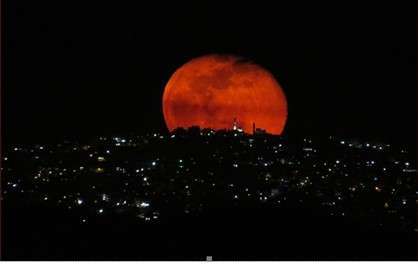
A special “blood moon” had been predicted for Passover night on April 8th. We went up to Esslingen Castle to see it. There were no people on the streets, the alleys were deserted. But you could see the lights in the houses everywhere and knew that there were people there, that life was happening. It was a very peculiar atmosphere, there was a special tension in the air. And then the moon rose up: huge and dark red, like we had never seen it before. It rose and spread an incredible brightness. Our friend Tehila Gimpel had sent us the Bible passage from Isaiah 30:26 about this event “And the moon’s light will be like the sun’s light… at the time when the LORD will bind up the hurt of his people and heal their wounds“. She emphasized that, according to verse 29, this would take place on the night before a holy festival. That fit perfectly.
I have never been a fan of making interpretations based on certain phenomena – because I actually think, that our insight is far too limited for that. Nevertheless, that evening, I couldn’t help feeling, that something was actually happening in the invisible world – and wishing, I was part of it.
The departure
Two weeks later, we received a message from our friends Ari and Jeremy: an invitation. Their original plan to build and found a yeshiva (college for Jewish religion) in the mountains of Judea had of course come to a standstill due to the coronavirus measures. But they came up with the idea of offering weekly international meetings via Zoom. The special thing about them was, that they wanted to open this school and the Zoom meetings to all nations. https://thelandofisrael.com/landofisraelfellowship
What hit me right in the heart, was their motto: “enhance your faith, deepen your understanding, align your destiny to Israel.”

The invitation also included a Bible verse: “In those days, ten people from nations with very different languages will take hold of the skirt of a Jewish man and say: “We will go with you, for we have heard that God is with you.” (Zechariah 8:23). The verse, which had been with me for so long… I felt, as if this invitation had been written especially for me. And I have rarely experienced such a quick, clear answer to prayer.
Years have passed since then. Years of virtual and personal encounters, years of input, sharing and learning together.
Years of community. Through the Fellowship I have met people from the United States, Australia, South Africa, Norway, the Czech Republic and many other countries. Here I have made friends, who have carried me through extreme health problems. Here I have experienced prayer support like never before. And I have come to understand much more deeply how Israelis think, feel and act.
So to continue painting the picture of that Seder evening: I suddenly decided to leave with them. I packed up my most important things. I was aware, that this journey would take me into unknown territory and that it was unclear, when we would reach our destination. I was also aware, that there would be obstacles and disappointments along the way. But none of that mattered. Because I knew one thing: these were God’s people, with whom he had made an eternal covenant. One he would keep! And so my own personal “Exodus from Egypt” took place, and I was able to accompany God’s people on their journey since then!
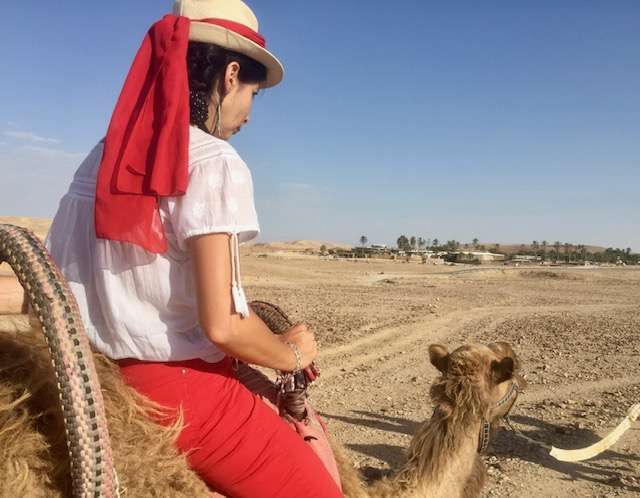
Epilogue
Every set off requires courage, the abandonment of the familiar and the willingness to learn and conquer new things. That was the case for the Israelites back then and it remains the challenge for every individual. Fascinatingly, the theme of setting off runs through the Bible from the very beginning. Already Abraham was asked to leave his homeland to move to a new country… The question of trust is always essential. Those, who know, that God is with them, will dare a lot and look forward to what awaits them.
As we all know, slavery in Egypt was not the last time that God’s people were in trouble. Much worse times were to follow: the expulsion of the Jews from Israel, the exile over the centuries and finally, as the absolute low point, the terrible Holocaust. Today, Israel is once again under threat from many sides and is fighting for its very existence.
But the memory, that God brought the absolute great power of that time to its knees for his people, that he suspended the laws of nature for them and parted a sea and that he finally made an eternal covenant with them on Mount Sinai, this memory has given Jews confidence for thousands of years and the strength to never give up, but to rise from the ashes again and again.
*************************************************************************
Appendix:
Nations that have offended God’s people and the consequences
In Spain, Jews were forced to convert to Christianity or emigrate by the expulsion edict of the Catholic kings Isabella and Ferdinand in 1492[i].
Great Britain did not keep the promise made in the Balfour Declaration of 1917, to establish a “national home” for the Jewish people in Israel[ii], but instead rigorously restricted entry during the Second World War, although it deliberately denied Jews salvation from the Holocaust.
Both empires collapsed.
Germany was devastatingly destroyed after it initiated the murder of 6 million Jews during the Holocaust.
Syria has fought Israel in several wars since its founding in 1946 and (unlike Egypt and Jordan) has never been willing to make peace. The civil war in Syria, which began in 2011, has claimed hundreds of thousands of lives and turned millions into refugees[iii].
[i] https://de.wikipedia.org/wiki/Nisan_(Monat)
[ii] https://de.wikipedia.org/wiki/Pessach
[iii] https://jebd.org.il/de/resource/in-every-generation/
[iv] https://www.gew-bw.de/aktuelles/detailseite/corona-rueckblick-2020


